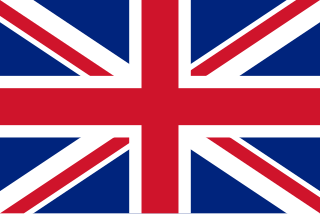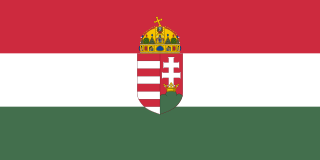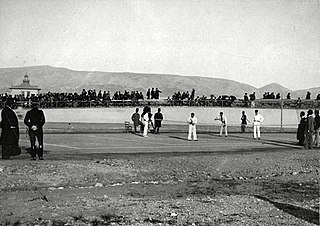
The 1896 Summer Olympics, officially known as the Games of the I Olympiad and commonly known as Athens 1896, were the first international Olympic Games held in modern history. Organised by the International Olympic Committee (IOC), which had been created by French aristocrat Pierre de Coubertin, the event was held in Athens, Greece, from 6 to 15 April 1896.

At the 1896 Summer Olympics, two weightlifting events were contested. The top two places were won by the same two men in each event, though their order was reversed for the two events. The bronze medals were split by the two Greek weightlifters. A total of seven men from five nations competed.

At the 1896 Summer Olympics, two tennis events were contested, both for men. They began on 9 April and continued on 8 April, 10 April, and 11 April. 13 or 15 competitors from six nations, including seven Greeks, took part in the tennis competition. Many of the doubles teams were of mixed nationality, including all three medalist pairs. None of the leading players of the time such as Wimbledon champion Harold Mahony, U.S champion Robert Wrenn, William Larned or Wilfred Baddeley participated. To strengthen the field, the organization added sportsmen from other Olympic events, including weightlifter Momčilo Tapavica, hammer thrower George S. Robertson and 800-metres runners Edwin Flack and Friedrich Traun.

At the 1896 Summer Olympics, five sport shooting events were contested. These events took place at the newly constructed shooting range at Kallithea. They were organized and prepared by the Sub-Committee for Shooting. Sixty-one shooters from seven nations competed.

At the 1896 Summer Olympics, eight gymnastics events, all for men, were contested in Panathinaiko Stadium. They were organized and prepared by the Sub-Committee for Wrestling and Gymnastics. Events took place on April 9, April 10, and April 11, 1896. There were 71 competitors from 9 nations that took part in gymnastics.

At the 1896 Summer Olympics, three fencing events were contested at the Zappeion. They were prepared and organized by the Sub-Committee for Fencing. The épée event for men was cancelled. All fencing was done to three touches. Events were held on 7 April and 9 April 1896. 15 athletes from four nations competed; 8 fencers from 3 nations won one medal each.

At the 1896 Summer Olympics, six cycling events were contested at the Neo Phaliron Velodrome. They were organized and prepared by the Sub-Committee for Cycling. Events were held on 8 April, 11 April, 12 April and 13 April 1896. Nineteen cyclists, all men, from five nations competed.

At the 1896 Summer Olympics, the first modern Olympiad, twelve athletics events were contested. A total of 25 medals were awarded. The medals were later denoted as 37 modern medals. All of the events except the marathon were held in the Panathinaiko Stadium, which was also the finish for the marathon. Events were held on 6 April, 7 April, 9 April, and 10 April 1896. Altogether, 63 athletes, all men, from nine nations competed. This made athletics the most international of the nine sports at the 1896 Games.

Australia competed at the 1896 Summer Olympics in Athens, Greece, from 6 to 15 April 1896. One athlete from Victoria, a British colony which later formed part of Australia, competed at the 1896 Summer Olympics in Athens, Greece. Edwin Flack was born in the United Kingdom and was resident in London in 1896, but spent most of his life in Australia and so is considered an Australian athlete by the International Olympic Committee.

Three sportsmen from Austria competed at the 1896 Summer Olympics. Though Austria was then a part of Austria-Hungary, most sources separate Austrian competitors from the Hungarians at the 1896 Games.

Germany competed at the 1896 Summer Olympics in Athens, Greece. The Germans were the third most successful nation in terms of both gold medals and total medals (13). Gymnastics was the sport in which Germany excelled. The German team had 19 athletes. The Germans had 75 entries in 26 events, taking 13 medals.

Ten athletes from the United Kingdom of Great Britain and Ireland competed in seven sports at the 1896 Summer Olympics. The Great Britain athletes were the fifth most successful in terms of overall medals (7) and tied for fifth in gold medals (2). The 7 medals came on 23 entries in 14 events.

Greece was the host nation of the 1896 Summer Olympics held in Athens. The number of Greek contestants is commonly cited as 169, but as many as 176 Greeks contested events in all nine sports. The Greeks were by far the most successful nation in terms of total medals with 47, 27 more than the United States of America. Nevertheless, their number of first-place finishes (10) was one fewer than the Americans' 11. The Greeks had 172 entries in 39 events. Only 4 events had no Greek entrants—the 400 metres and the high jump in athletics and the vault and the team horizontal bar in gymnastics.

Hungary competed at the 1896 Summer Olympics in Athens, Greece. Austrian and Hungarian results at early Olympic Games are generally kept separate despite the union of the two nations as Austria-Hungary at the time.

One competitor from Italy was present at the 1896 Summer Olympics. He competed in shooting. Italy was one of four nations present that won no medals; Sweden, Chile and Bulgaria were the others. Italy's competitor, Rivabella, entered one event in the shooting program.

One competitor from Sweden was present at the 1896 Summer Olympics. He competed in athletics and gymnastics, with 5 entries in as many events. Sweden was one of four nations present that won no medals; Italy, Chile and Bulgaria were the others.

Three competitors from Switzerland competed in two sports at the 1896 Summer Olympics. The Swiss won one championship and placed second in two more events, for a total of three medals. They had 8 entries in 5 events.

Fourteen competitors from the United States competed in three sports at the 1896 Summer Olympics in Athens, Greece. The Americans were the most successful athletes in terms of gold medals, beating host nation Greece, 11 to 10, despite fielding only 14 competitors compared to an estimated 169 Greek entrants. However, the Greeks' 46 total medals dwarfed the Americans' 20.

The men's singles was one of two tennis events on the Tennis at the 1896 Summer Olympics programme. The fifteen entrants were seeded into a single-elimination tournament, with thirteen competing. They represented six nations.

The men's doubles was one of two tennis events on the tennis at the 1896 Summer Olympics programme. The six pairs that entered were seeded into a single elimination tournament. Only five actually competed, hailing from four nations but entering as three Greek teams and a pair of mixed teams. It was the only event in the 1896 Summer Olympics that had mixed teams.





















